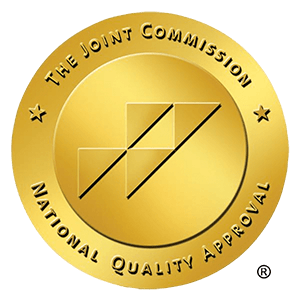Embarking on the journey to sobriety is an immense step towards reclaiming control over one’s life. However, maintaining long-term sobriety often necessitates ongoing support and guidance. While inpatient rehabilitation programs provide intensive care, outpatient treatment offers a crucial continuum of care that supports individuals as they transition back into their daily lives. In this article, we delve into the pivotal role outpatient treatment plays in fostering and sustaining long-term sobriety. From flexible scheduling to personalized treatment plans, outpatient programs cater to the diverse needs of individuals seeking recovery from substance abuse. By integrating therapy, counseling, and educational sessions into their routine, participants gain invaluable tools to navigate life’s challenges without turning to substances. Furthermore, outpatient treatment fosters a sense of community and accountability, providing a supportive network of peers and professionals dedicated to achieving lasting sobriety. Join us as we explore how outpatient treatment can be a cornerstone in the journey towards a fulfilling, substance-free life.
The Benefits of Flexibility in Outpatient Treatment Programs
In the realm of addiction recovery, the path to sobriety is as unique as the individuals traversing it. Outpatient treatment programs stand out as beacons of flexibility in a landscape often characterized by rigidity. This flexibility isn’t just a convenience; it’s a critical component of successful, long-term sobriety. Let’s delve deeper into why flexibility is a cornerstone of outpatient treatment programs and the myriad benefits it offers to those seeking recovery.
Embracing Individual Schedules
One of the most significant advantages of outpatient treatment is its ability to accommodate individual schedules. Unlike inpatient programs, which require individuals to reside at a treatment facility for a specified period, outpatient programs offer the freedom to attend therapy sessions and other activities while still maintaining personal and professional commitments. This flexibility eliminates the need to put life on hold for the sake of recovery, making it easier for individuals to integrate treatment into their daily lives seamlessly.
Supporting Continued Engagement
Consistency is key in addiction recovery, and flexibility plays a vital role in fostering continued engagement with treatment. By allowing individuals to schedule sessions at times that work best for them, outpatient programs reduce barriers to participation and increase the likelihood of regular attendance. This consistent engagement ensures that individuals receive the ongoing support and guidance they need to navigate the challenges of recovery effectively.
Fostering Independence and Responsibility
Outpatient treatment programs empower individuals to take ownership of their recovery journey by promoting independence and responsibility. Unlike the structured environment of inpatient facilities, outpatient programs encourage participants to apply the skills and strategies they learn in therapy to real-life situations. This hands-on approach instills a sense of self-reliance and accountability, laying the foundation for long-term sobriety beyond the confines of formal treatment.
Facilitating Integration into Daily Life
Recovery doesn’t happen in isolation; it occurs within the context of daily life. Outpatient treatment programs recognize this reality and strive to integrate therapy and support services seamlessly into individuals’ existing routines. Whether it’s attending sessions after work, during lunch breaks, or on weekends, outpatient programs allow individuals to prioritize their recovery without sacrificing other aspects of their lives. This integration promotes holistic wellness by addressing the interconnected nature of physical, emotional, and social well-being.
Adapting to Changing Needs
Flexibility isn’t just about accommodating busy schedules; it’s also about adapting to the changing needs of individuals in recovery. Outpatient programs offer the versatility to adjust treatment plans based on progress, challenges, and evolving goals. Whether it involves transitioning to less intensive care as individuals gain confidence in their sobriety or increasing support in times of heightened stress, outpatient programs can tailor their approach to meet the unique needs of each participant.
Tailored Treatment Plans for Lasting Recovery
In the pursuit of lasting recovery from addiction, one size certainly does not fit all. Each individual grappling with substance abuse brings a unique set of circumstances, challenges, and aspirations to their recovery journey. Recognizing this diversity, outpatient treatment programs prioritize the development of tailored treatment plans that address the specific needs and goals of each participant. Let’s explore why personalized care is essential for achieving and sustaining long-term sobriety.
Understanding the Individual
At the heart of a tailored treatment plan lies a deep understanding of the individual seeking recovery. Outpatient treatment programs begin by conducting comprehensive assessments to gather information about the individual’s substance use history, co-occurring disorders, personal strengths, support systems, and treatment preferences. This holistic approach enables clinicians to gain insight into the factors driving addiction and tailor interventions to address the root causes effectively.
Addressing Co-occurring Disorders
Substance abuse rarely occurs in isolation; it often coexists with underlying mental health conditions such as depression, anxiety, trauma, or personality disorders. To achieve lasting recovery, it’s crucial to address these co-occurring disorders alongside addiction. Tailored treatment plans in outpatient programs integrate evidence-based therapies, medication management, and holistic modalities to provide comprehensive care that addresses both substance use and mental health needs.
Customizing Therapeutic Modalities
No two individuals respond to treatment in exactly the same way. Tailored treatment plans leverage a diverse range of therapeutic modalities to cater to the unique preferences and needs of each participant. From cognitive-behavioral therapy (CBT) and dialectical behavior therapy (DBT) to mindfulness-based approaches and experiential therapies, outpatient programs offer a variety of options to ensure that individuals receive interventions that resonate with them on a personal level.
Incorporating Life Skills Training
Recovery extends far beyond the confines of therapy sessions; it encompasses every aspect of an individual’s life. Tailored treatment plans in outpatient programs recognize this reality and often include life skills training as a fundamental component of care. These skills may encompass practical topics such as stress management, communication skills, conflict resolution, time management, financial literacy, and healthy coping strategies. By equipping individuals with the tools they need to navigate the challenges of daily life without resorting to substances, outpatient programs empower them to sustain their recovery in the long term.
Nurturing Strengths and Interests
Each individual possesses unique strengths, interests, talents, and aspirations that can serve as powerful catalysts for recovery. Tailored treatment plans in outpatient programs seek to identify and nurture these assets, leveraging them as sources of motivation, resilience, and purpose. Whether it involves pursuing hobbies, engaging in creative expression, volunteering in the community, or setting and achieving personal goals, individuals are encouraged to harness their innate strengths as they embark on the journey of recovery.
Transitioning from Outpatient Treatment to Independent Living
As individuals progress through outpatient treatment programs and gain momentum in their journey towards recovery, the transition to independent living becomes a significant milestone. This transition marks the culmination of their efforts in treatment and signifies their readiness to apply the skills and strategies they’ve learned to navigate life outside of the structured treatment environment. Let’s explore the key points involved in this pivotal phase of the recovery process.
- Gradual Integration: The transition from outpatient treatment to independent living is typically gradual, allowing individuals to ease into greater autonomy while still receiving support from their treatment team. This phased approach minimizes the risk of relapse and provides a safety net as individuals adjust to the demands and responsibilities of independent living.
- Continued Support Systems: While transitioning to independent living, individuals maintain connections with their support systems, including therapists, counselors, support groups, and sober peers. These ongoing relationships serve as sources of encouragement, guidance, and accountability, bolstering individuals’ confidence and resilience as they navigate life beyond treatment.
- Relapse Prevention Strategies: Transitioning to independent living involves implementing relapse prevention strategies tailored to the individual’s needs and circumstances. These strategies may include identifying triggers, developing coping skills, creating a support network, and establishing healthy routines that promote sobriety and well-being.
- Housing and Stability: Securing stable housing is a crucial aspect of transitioning to independent living. Outpatient treatment programs often provide assistance with housing resources, transitional living arrangements, or referrals to supportive housing programs to ensure that individuals have a safe and stable environment in which to continue their recovery journey.
Transitioning from outpatient treatment to independent living marks a significant milestone in the journey of recovery from addiction.
Conclusion
At Core Recovery, we believe that outpatient treatment plays a pivotal role in fostering long-term sobriety for individuals battling addiction. Through our comprehensive programs in Phoenix, Arizona, we prioritize personalized care and support to empower individuals on their journey towards recovery. By offering accessible and flexible treatment options, we ensure that our clients receive the necessary tools and resources to maintain sobriety beyond their time with us. At Core Recovery, we are committed to facilitating lasting positive change in the lives of those we serve, promoting a brighter, healthier future for our community.





 In CA By O360®
In CA By O360®